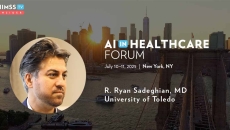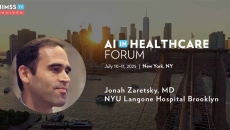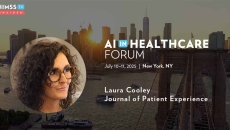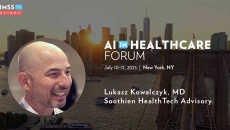Analytics
While commercial software is very good at providing clinical decision support applications, it is essential to identify a targeted goal within the software, says Dr. Ryan Sadeghian, CMIO at the University of Toledo.
Duane Perry, chief nursing officer at OhioHealth, says he envisions a future state where experienced nurses can remain part of the nursing care model and be actively involved in not only precepting but also caring for patients virtually.
Patients can get more access to their healthcare information when AI is used to translate patient notes in their chart into a patient-friendly language and format, says Dr. Jonah Zaretsky, medical director at NYU Langone Hospital Brooklyn.
Artificial intelligence gives Cedars-Sinai's clinicians EHR-supported diagnoses and treatment plan recommendations after patients complete virtual urgent care clinic intake questions in a structured chat.
AI can be used as a tool to provide patients and their families with more information, faster access and more affordable care, says Laura Cooley, editor in chief of the Journal of Patient Experience.
Arnaub Chatterjee, Datavant president and GM of life sciences, says the company will streamline data linking and evidence generation across real-world and clinical trial data.
Managing AI agents and prompt engineering is not like standard software engineering, and no one has really figured out how to do it at scale reliably yet, says Dr. Lukasz Kowalczyk, a gastroenterologist and CEO of Soothien HealthTech Advisory.
The news comes alongside the U.S. Department of Defense’s announcement of $200 million contracts awarded to xAI, Anthropic, Google and OpenAI for AI implementation.
Event attendees explored the challenges and benefits of AI while learning about governance, leadership strategy, workforce challenges, transparency, patient safety and data security at the gathering in Brooklyn, New York.
The AI co-developed with ASX-listed Artrya can outperform the Agatston score in predicting cardiac events.









